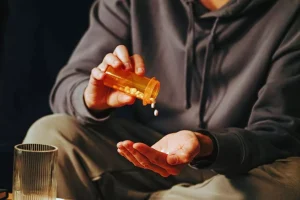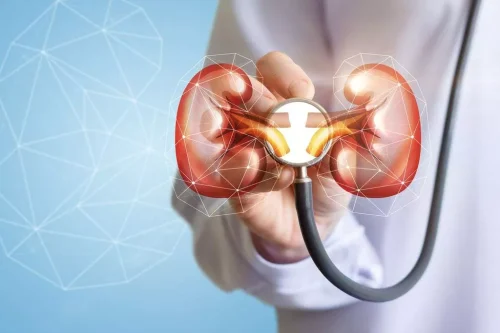
This aspect of relapse prevention can be beneficial to those in addiction treatment or contemplating treatment since it is not necessarily a failure to exercise self-control or abstain from using a substance of abuse. Brie works closely with the leadership team to develop and implement effective abstinence violation effect HR strategies that support our organization’s goals and values. A physical relapse occurs when you take your first drug or drink after achieving sobriety. Marlatt differentiates between slipping into abstinence for the first time and totally abandoning the goal.

Sign up for text support
If you have completed a drug or alcohol treatment program, then you are probably considering trying to rebuild your life. It won’t happen overnight, and you will likely have setbacks – this is… As a result, the AVE can trigger a =https://ecosoberhouse.com/ cycle of further relapse and continued substance use, since people may turn to substances as a way to cope with the emotional distress. You may also have a similar thought to the reward thought after a period of sobriety. After a period of success in your recovery, you may think you can control your drug or alcohol use again.
Treatment Programs

In the multifaceted journey of overcoming addiction and living a healthier life, individuals often encounter a psychological phenomenon known as the abstinence violation effect (AVE). Once relapsed, this strongly held belief increases the likelihood of relapse. An individual who feels guilt often uses substances to ease their guilt, which can lead to AVE. Guilt is a difficult emotion for someone to bear, one that can constantly replay in their minds, leading them to use substances again.
BPD Splitting: Understanding Black and White Thinking in Borderline Personality Disorder
Dr. Bishop is also a certified open water scuba diver, he enjoys fishing, traveling, and hunting. Cori’s key responsibilities include supervising financial operations, and daily financial reporting and account management. Cori’s goal is to ensure all patient’s needs are met in an accurate and timely manner. She is a Certified Recovery Residence Administrator with The Florida Certification Board and licensed Notary Public in the state of Florida. Twelve-month relapse rates following alcohol or drug cessation attempts can range from 60 to 90 percent, and the AVE can contribute to extended relapses.
- It can be a single instance where someone decides to use the substance again.
- Through shifting attention towards positive coping skills and strategies, the impact of lapse and the intensity of the AVE can be minimized.
- It is inevitable that everyone will experience negative emotions at one point or another.
- When one returns to substance use after a period of abstinence, they experience a negative cognitive and affective reaction known as an abstinence violation effect in psychotherapy.
There is a possibility that you might rationalize why you might not experience the same consequences if you continue to use. Anxiety, depression, loneliness, and irritability are all symptoms of this stage. It is inevitable Alcoholics Anonymous that everyone will experience negative emotions at one point or another.
Polygamous Marriage: Understanding Multiple-Partner Relationships in Modern Society
The Abstinence Violation Effect can have both positive and negative effects on behavior change. On the one hand, it can serve as a valuable learning opportunity, highlighting the triggers and situations that lead to relapse or rule violation. This awareness can aid in the development of effective coping strategies and relapse prevention techniques. On the other hand, if individuals perceive the Abstinence Violation Effect as a sign of personal failure or lack of self-control, it may diminish their self-efficacy and motivation to continue pursuing behavior change. The AVE was introduced into the substance abuse literature within the context of the “relapse process” (Marlatt and Gordon 1985, p. 37).
How to Express Your Feelings Without Starting Arguments: 5 Proven Steps
John understands first hand the struggles of addiction and strives to provide a safe environment for clients. The AVE describes the negative emotional response that often accompanies a failure to maintain abstinence from drugs or alcohol. Many people can relate to this feeling of guilt when they use a substance, like alcohol or marijuana, after promising themselves they wouldn’t. For people in recovery, a relapse can mean the return to a cycle of active addiction.

Adaptive—I am doing the best I can and will continue to do the best I can. Realistic—Although I had a setback, I did not lose the gains that I have made in the past months. Going back to the old way of behaving will only hurt me in the future. Brie graduated as a high school valedictorian with a major in Health Technologies and continued her studies at Springfield Technical Community College with a focus on healthcare. She served in Operations and HR for a finance company for ten years, before returning to healthcare and eventually arriving at USR. As of 2020, the number of drug-involved overdose deaths reached an all-time high of 91,799, according to the National Institute on Drug Abuse.
- An individual who feels guilt often uses substances to ease their guilt, which can lead to AVE.
- In psychotherapy, an abstinence violation effect refers to the negative cognitive and affective reactions one experiences after returning to substance use after a period of abstinence.
- As a result, the AVE can trigger a cycle of further relapse and continued substance use, since people may turn to substances as a way to cope with the emotional distress.
How the Abstinence Violation Effect Affects Recovery

Ark Behavioral Health offers 100% confidential substance abuse assessment and treatment placement tailored to your individual needs. This can include abstinence from substance abuse, overeating, gambling, smoking, or other behaviors a person has been working to avoid. AVE describes the negative, indulgent, or self-destructive feelings and behavior people often experience after lapsing during a period of abstinence. The abstinence violation effect (AVE) describes the tendency of people recovering from addiction to spiral out of control when they experience even a minor relapse. Instead of continuing with recovery, AVE refers to relapsing heavily after a single violation. More than half of those who achieve sobriety relapse, which can be disheartening but can also lead to relapse because you believe that you will relapse.
How Common is Accidental Drug Overdose?
In psychotherapy, an abstinence violation effect refers to the negative cognitive and affective reactions one experiences after returning to substance use after a period of abstinence. As a result of AVE, a person may experience uncontrollable, stable attributions, and feelings of shame and guilt after a relapse. It is not even on your mind to relapse at this point because of stress, high-risk situations, or inborn anxieties. The negative emotional responses you are experiencing are related to stress, high-risk situations, or inborn anxieties. Because emotional relapses occur so deeply below the surface in your mind, they can be incredibly difficult to recognize. When one returns to substance use after a period of abstinence, they experience a negative cognitive and affective reaction known as an abstinence violation effect in psychotherapy.